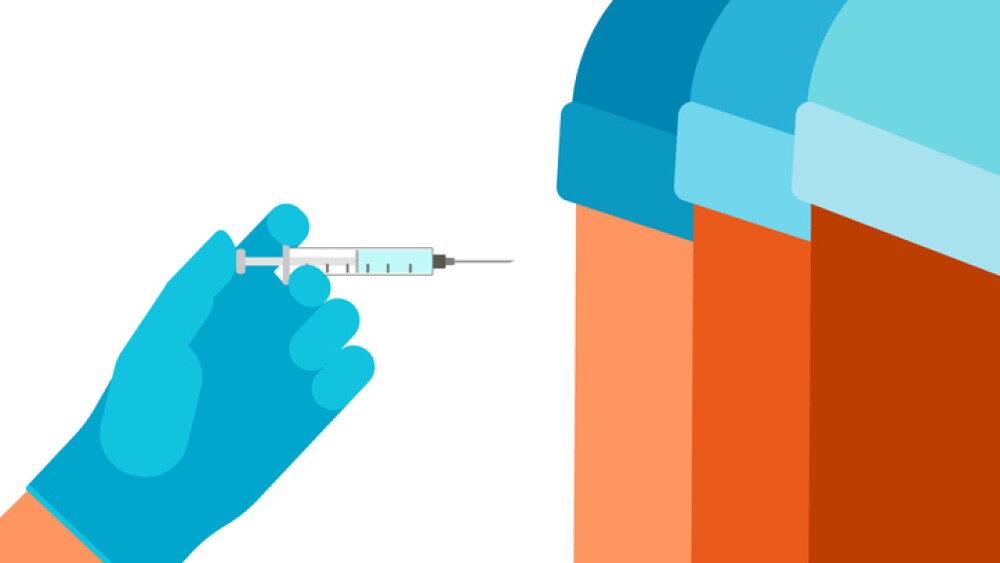SAN FRANCISCO and CHICAGO, April 15 /PRNewswire-FirstCall/ -- Medivation, Inc. today announced that Alzheimer's patients taking the investigational drug Dimebon(TM) showed significant improvement in their ability to perform daily tasks over a one-year period compared to placebo. This improvement allowed caregivers to save an average of nearly one hour (51 minutes) each day caring for patients. The benefits of Dimebon were seen in eating, toilet use, phone use, conversation, meal preparation, traveling, keeping appointments, reading and using household appliances. These clinical results were generated during a pivotal trial of Dimebon in patients with mild-to-moderate Alzheimer's disease (AD).
The data were presented today during a poster session on "Aging and Dementia: Treatment" at the 60th Annual Meeting of the American Academy of Neurology (AAN) by Rachelle Doody, M.D., Ph.D., the Effie Marie Cain Chair in Alzheimer's Disease Research at the Alzheimer's Disease and Memory Disorders Center, Baylor College of Medicine in Houston.
"After one year of therapy with Dimebon, Alzheimer's disease patients performed better in daily function than patients who did not get Dimebon, allowing them to maintain their functionality and decreasing the time needed by caregivers to assist with daily activities," said Dr. Doody. "In contrast, placebo-treated patients declined in function and required greater caregiver assistance, as would be expected given the natural progression of this neurological disease."
Dimebon Significantly Improved Activities of Daily Living at Both Six Months and One Year
The data presented at the AAN Annual Meeting included results of an analysis of the subdomains of the Alzheimer's Disease Cooperative Study-Activities of Daily Living (ADCS-ADL) endpoint, a measure of day-to-day function in AD patients, and of caregiver time as measured by the Resource Utilization in Dementia (RUD-lite) questionnaire. During the study, the ADCS-ADL was assessed at the beginning of the study and at weeks 12, 26, 39 and 52. Caregiver time was assessed using the RUD-lite at the start of the study and at week 26.
Results showed that Dimebon-treated patients were significantly improved on the ADL score compared with placebo-treated patients after six months (p=0.01) and one year of treatment (p=0.004). Among patients treated with Dimebon, significant (p<0.05) improvements were observed in the subdomains of eating, toilet use, phone use, conversation, preparing meals, traveling, keeping appointments, reading and using household appliances after one year.
Dimebon Reduced Daily Caregiver Assistance Time
Importantly, after six months of treatment, caregivers of the Dimebon-treated patients were spending an average of 51 minutes less on ADL assistance during a typical day compared to caregivers of placebo-treated patients (p=0.0004). Patients on placebo required an increase in daily caregiver time from 5.1 to 5.4 hours, while caregivers of Dimebon-treated patients reported a decrease from 4.4 to 3.9 hours daily.
"Anyone who has experienced Alzheimer's disease in a loved one knows that it is a devastating disease that steals from patients their ability to think and care for themselves," said Lynn Seely, M.D., chief medical officer of Medivation. "We are very encouraged that Dimebon improved and sustained the functional capabilities of patients with Alzheimer's disease after one year, and that patients required less caregiver assistance. A second pivotal trial designed to confirm these results will be starting soon."
Dimebon Showed Statistically Significant Benefit Versus Placebo on All Key Efficacy Endpoints
Medivation previously announced efficacy and safety results from the pivotal, 12-month, double-blind, placebo-controlled trial of Dimebon in 183 patients with mild-to-moderate AD. Dimebon improved the clinical course of Alzheimer's disease patients by causing statistically significant improvements over placebo in each of the five primary aspects of the disease -- memory, thinking, activities of daily living, behavior and overall clinical function. Significant gains over placebo were evident after as little as 12 weeks of treatment, and were maintained after both six months and a full year of treatment. In addition, after six months of treatment, Dimebon patients were significantly better on all five disease aspects than they were at the beginning of the study. The real-world impact of these data was evaluated by independent assessment, including caregiver interviews, which confirmed improvement or stabilization in 81 percent of Dimebon-treated patients after six months of treatment. Importantly, Dimebon's overall benefit compared to placebo continued to increase over time, and was larger at one year than at six months.
Dimebon was well-tolerated throughout the entire one-year treatment period. The majority of adverse events were mild, with dry mouth (18.0 percent Dimebon, 1.1 percent placebo) and depressed mood the most common events. There were significantly fewer serious adverse events in the Dimebon group than in the placebo group at one year.
Medivation is planning to initiate a second, confirmatory pivotal Phase 3 trial of Dimebon in mild-to-moderate AD in the second quarter of 2008 with the goal of completing the trial and applying for U.S. and European marketing approval in 2010. The Company is also evaluating Dimebon in an ongoing Phase 2 clinical trial in mild-to-moderate Huntington's disease. Dimebon is an orally-available small molecule that has been shown to inhibit brain cell death in preclinical models relevant to Alzheimer's and Huntington's diseases, making it a potential treatment for these and other neurodegenerative diseases.
About Medivation
Medivation, Inc. is a biopharmaceutical company with small molecule drugs in clinical development to treat three large, unmet medical needs -- Alzheimer's disease, Huntington's disease and hormone-refractory prostate cancer. The Company's strategy is to identify promising product candidates, to develop them in a rapid, cost-effective manner, and to seek development and/or commercialization partners as appropriate to complement its internal efforts. For more information, please go to http://www.medivation.com.
This press release contains forward-looking statements, including statements regarding anticipated clinical and regulatory milestones, which are made pursuant to the safe harbor provisions of the Private Securities Litigation Reform Act of 1995. Forward-looking statements involve risks and uncertainties that could cause actual results to differ significantly from those projected. You are cautioned not to place undue reliance on the forward-looking statements, which speak only as of the date of this release. None of the Company's product candidates has been approved for sale, significant additional animal and human testing is required in order to seek marketing approval for any of its product candidates, and Medivation cannot assure you that marketing approval can be obtained for any of its product candidates. Furthermore, as is typically the case at this stage of the regulatory review process, the FDA has not yet performed an in-depth review of Medivation's preclinical and clinical data, so its views remain subject to change. Medivation's filings with the Securities and Exchange Commission, including its Annual Report on Form 10-KSB for the year ended December 31, 2007, include information about additional factors that could affect the Company's financial and operating results.
CONTACT: Patrick Machado, Chief Financial Officer of Medivation, Inc.,
+1-415-829-4101; or Amanda Mason of WeissComm Partners, +1-646-382-3820,
for Medivation, Inc.
Web site: http://www.medivation.com/




